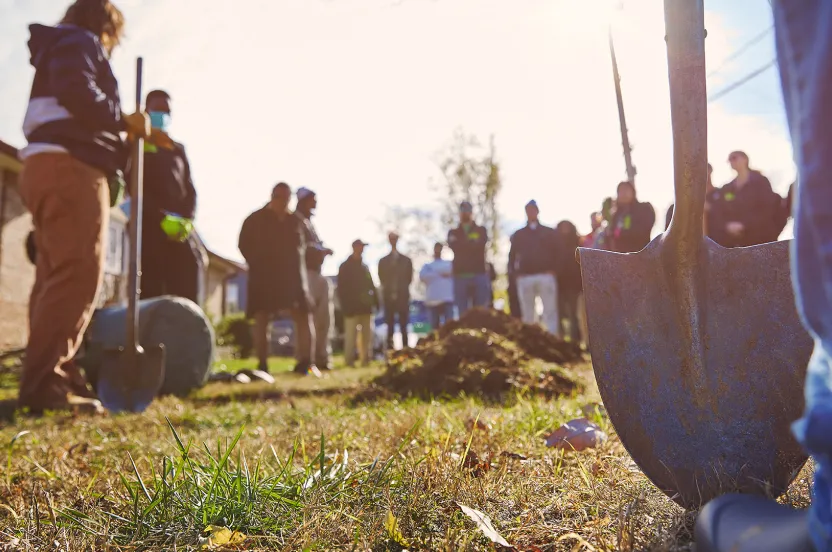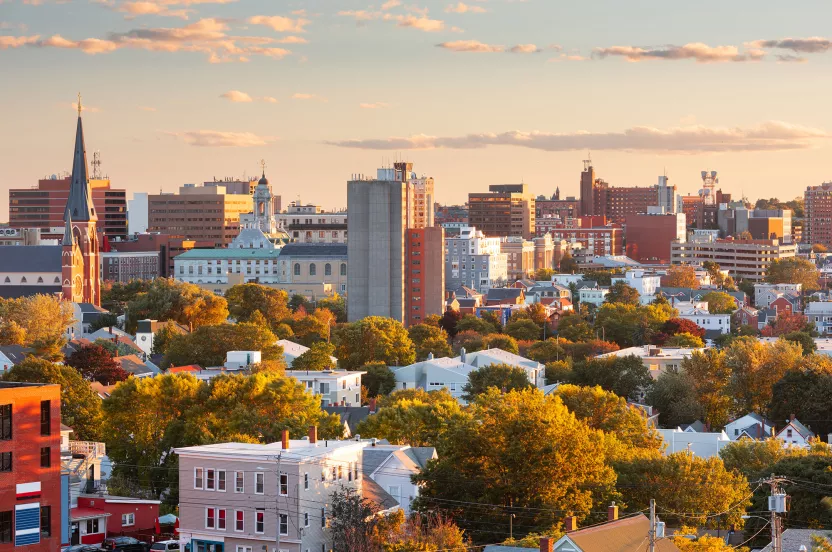Now live: The 2025 Canopy Report. Learn how Americans see trees. GET THE REPORT
Trees As a Force for Equity
A grassroots approach to combatting Nashville’s urban heat islands.
July 14, 2023
There is a sense of pride in Parkwood Estates, a neighborhood in north Nashville.
It’s one that comes from having roots in a community. From raising your children, and in turn watching them raise theirs in the same place. There is a quiet strength here, a tenacity to stick with the neighborhood even as the city around it changes.
And the city has changed a lot. In fact, the population of Nashville has ballooned 20% in the last decade alone.
While the population booms in certain areas, other neighborhoods like Parkwood Estates, often majority-minority and lower income, have been overlooked for decades when it comes to investment.
The lack of infrastructure funding in these areas means parks and green spaces are few and far between, with most trees on private plots of land. As temperatures rise, a lack of tree canopy citywide can create urban heat islands—areas where buildings and other hard surfaces absorb and retain heat, increasing the overall temperature on the ground. These areas can experience a temperature increase of more than 10 degrees or more.
One of the most sure-fire strategies to combat the effects of heat islands is planting trees. But in Nashville, where up to 94% of land is privately owned, how can individual homeowners be encouraged to plant on their properties? The answer, as always, comes from those who know their communities best.

Growing from the ground up
Through an environmental justice grant from the Arbor Day Foundation, the Cumberland River Compact’s Root Nashville initiative followed Nashville natives’ lead on creating healthier, more equitable communities. Using an environmental justice rubric, this group of local experts put their heads together to identify 12 neighborhoods where planting efforts would be prioritized.
From there, neighborhood planting captains got to work.
Planting captains are local leaders and proud members of their community whose role is to advocate for their neighbors. They do this by personally reaching out to help residents sign up for free trees to plant in their yard – either on their own or with help.

The impact of this grassroots neighbor-to-neighbor connection is powerful. On a clear fall day, a planting party brought together nearly 100 volunteers who got their hands dirty putting about 300 trees in the ground. Tree by tree, residents saw what they could accomplish together to make their homes greener, healthier, more rooted places.
“Especially with an initiative like this, people are starting to realize how they can play a role in shaping their community far more than what they did before,” said Tranyce Parmer, a neighborhood planting captain. “People are able to see what little change they’re able to offer in the equation and how that may produce a better outcome that’s better for everyone.”
Creating more equitable neighborhoods is about more than planting the right trees in the right places. It’s about investing in a more equitable future one community at a time.



